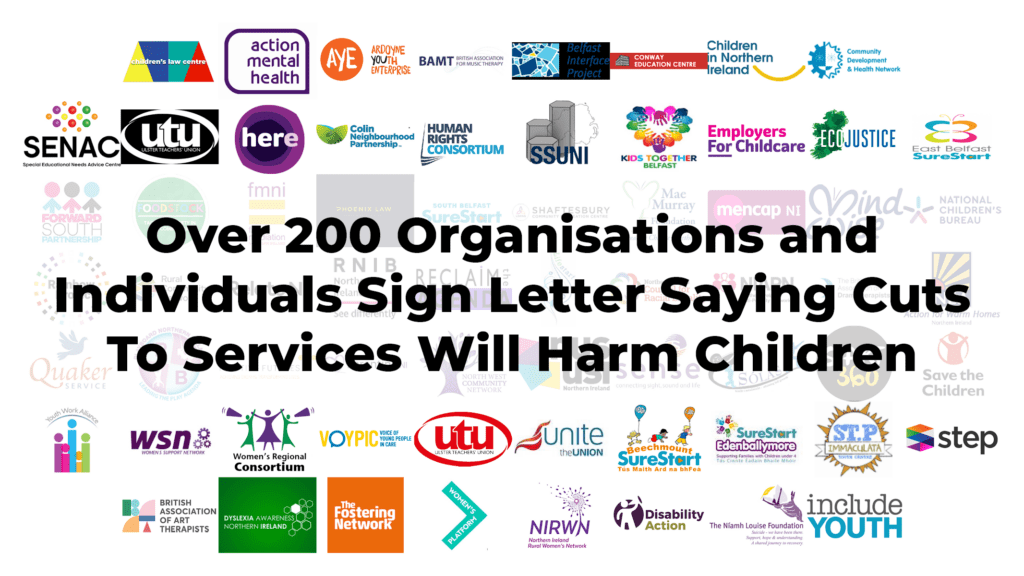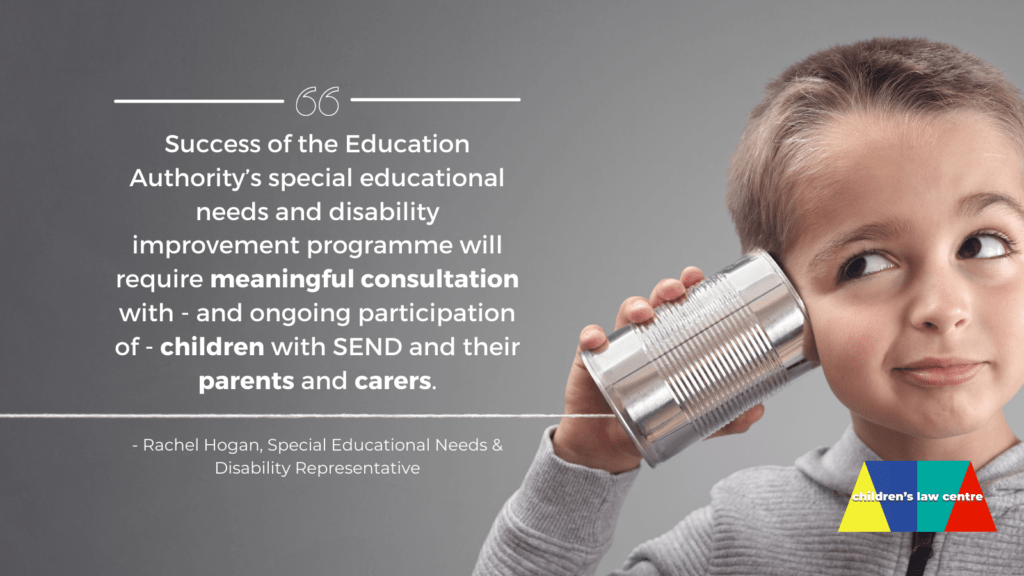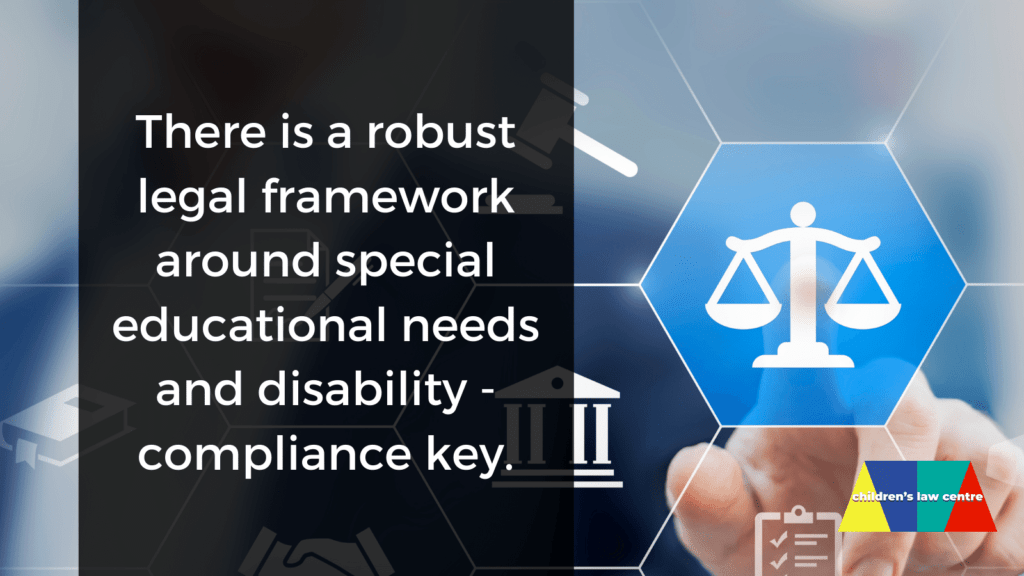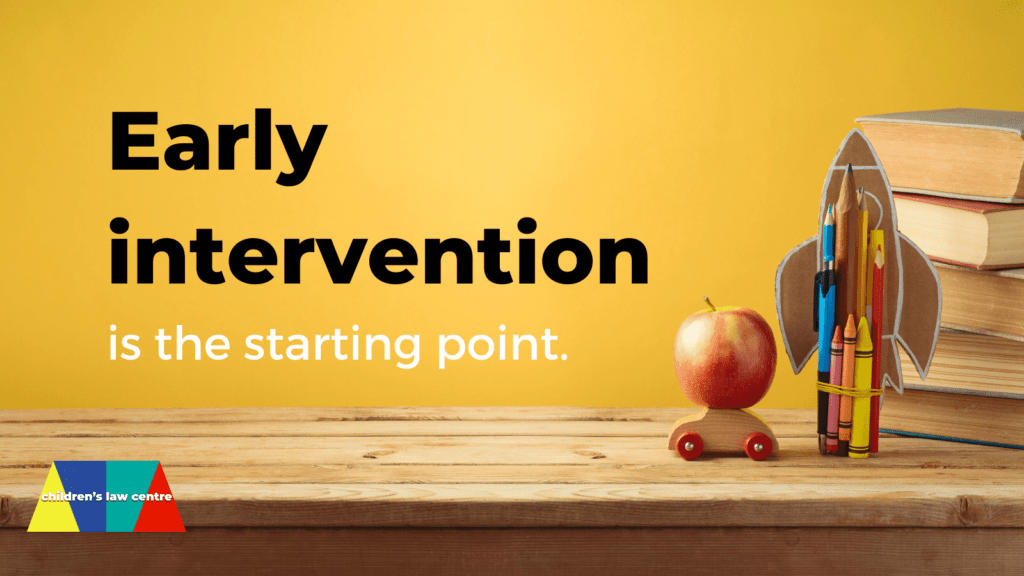23 May 2023
A new independent review of special educational needs services conducted by Ipsos has found that, under the current system and processes, early intervention for children is almost impossible.
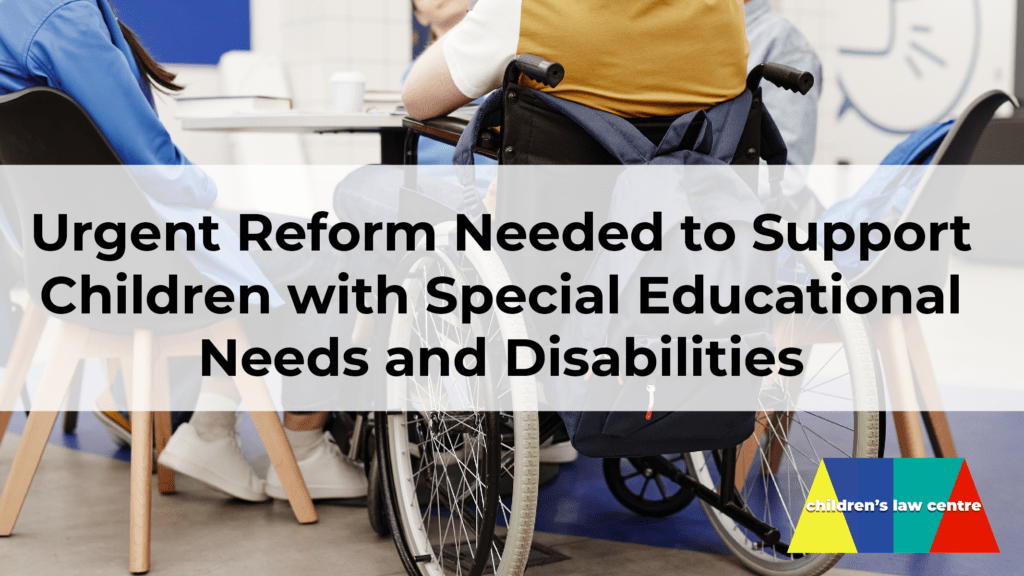
The report highlights the need for urgent reform. It builds on a number of critical reports and provides recommendations to improve support for children and young people with special educational needs and disabilities (SEND).
The Children’s Law Centre (CLC) has welcomed the report and called for urgent action, and the necessary ringfenced funding, to ensure meaningful changes are made to provide earlier and more effective support.
Rachel Hogan, SEND expert at the Children’s Law Centre, said:
“This is a welcome report that highlights a number of failures already well known to those who work with children with special educational needs and disabilities. We have been raising these issues for many years and at CLC we see the negative impact on children in our daily work.
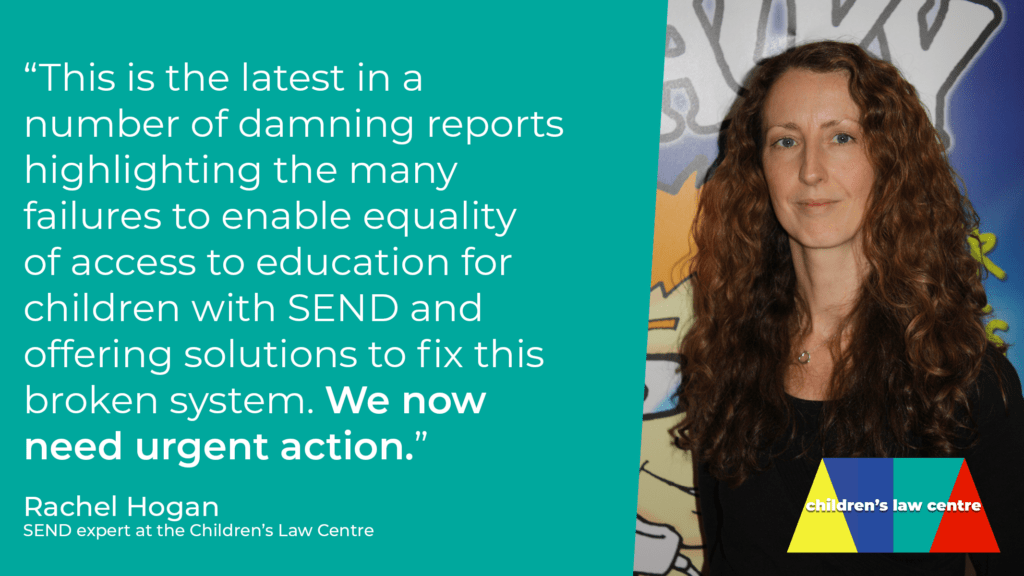
“This is the latest in a number of damning reports highlighting the many failures to enable equality of access to education for children with SEND and offering solutions to fix this broken system. We now need urgent action.
“Interventions must come earlier and the obstacles to securing support must be removed. Interventions should be focused on outcomes for the child, rather than internal process-focused outcomes. Those who work with children should be better trained on how to identify and provide special educational support, with all children’s services co-operating to put support around the child, with schools becoming more accessible and inclusive educational spaces.
“The report also highlights the urgent need for investing in reform. The Children’s Law Centre, along with 200 organisations and individuals, recently wrote to the Secretary of State for Northern Ireland, Chris Heaton-Harris, to raise concerns around cuts to children’s services. Playing politics with our children’s futures and failing to properly invest in stabilising and reforming SEND services will not only continue to harm children but it will strip our economy of valuable financial resources and a properly educated workforce in the long-term.”
The Ipsos report can be found at: https://www.education-ni.gov.uk/publications/independent-review-special-educational-needs-services-and-processes

